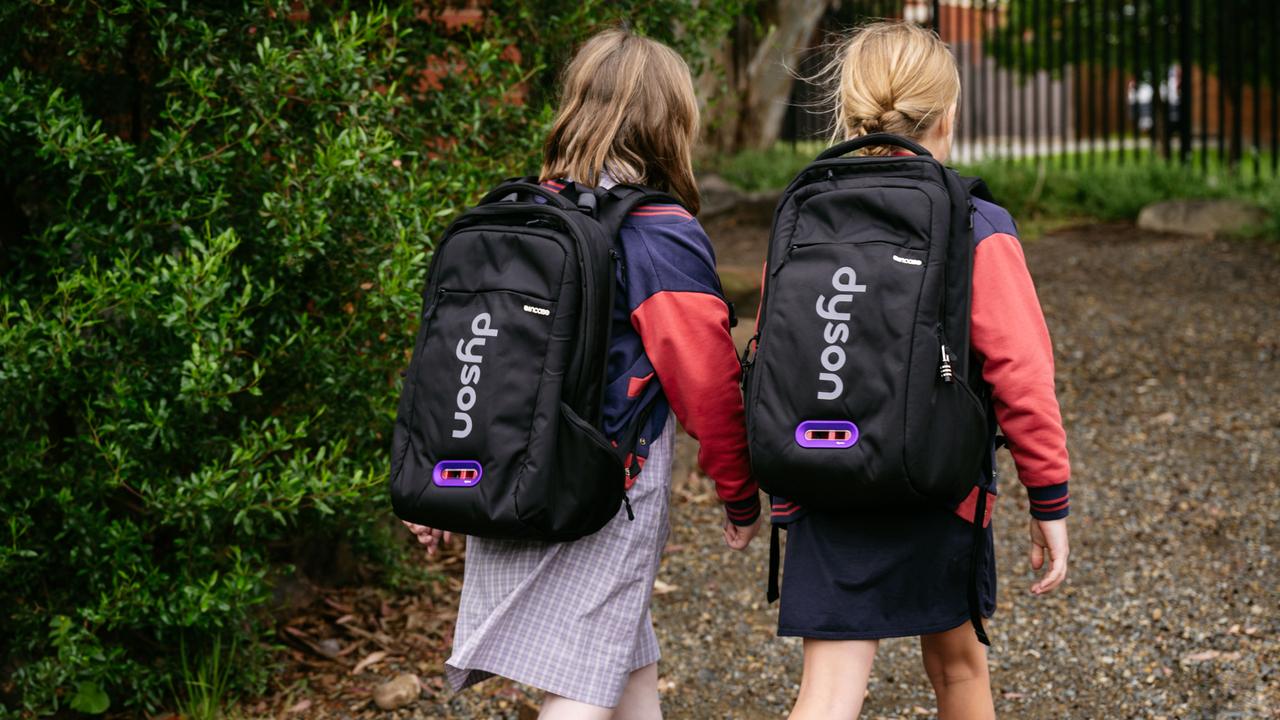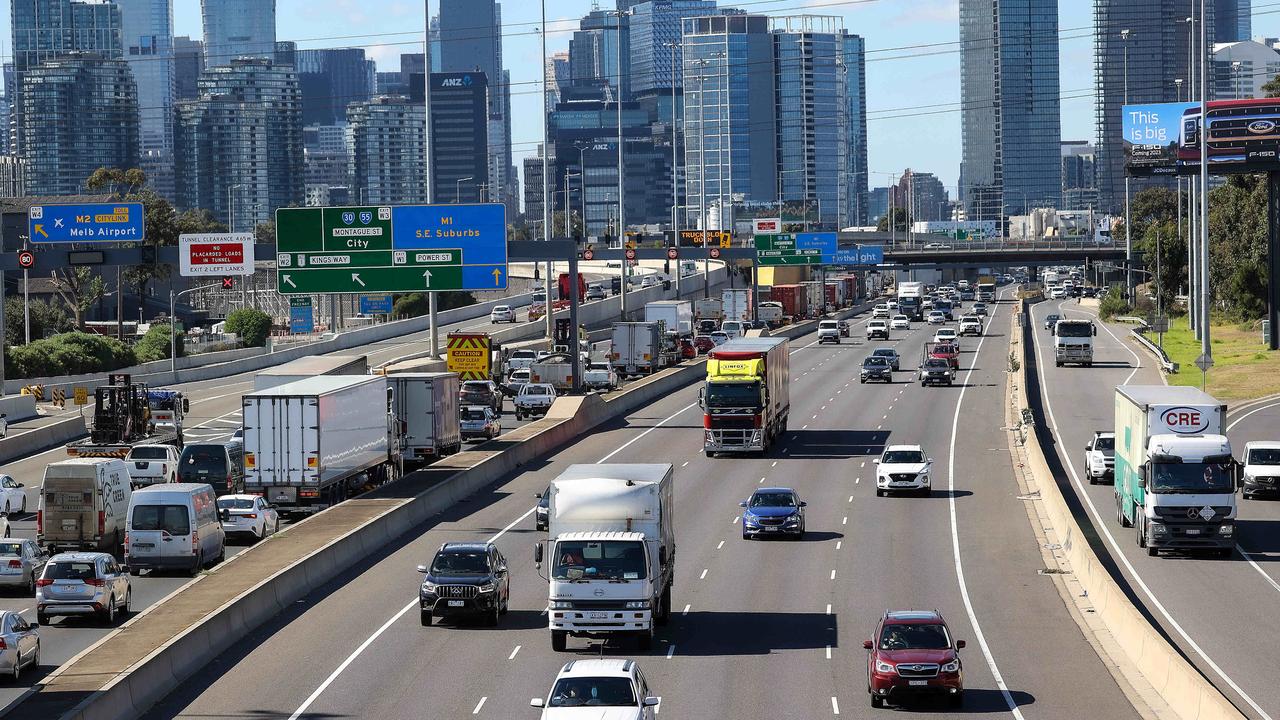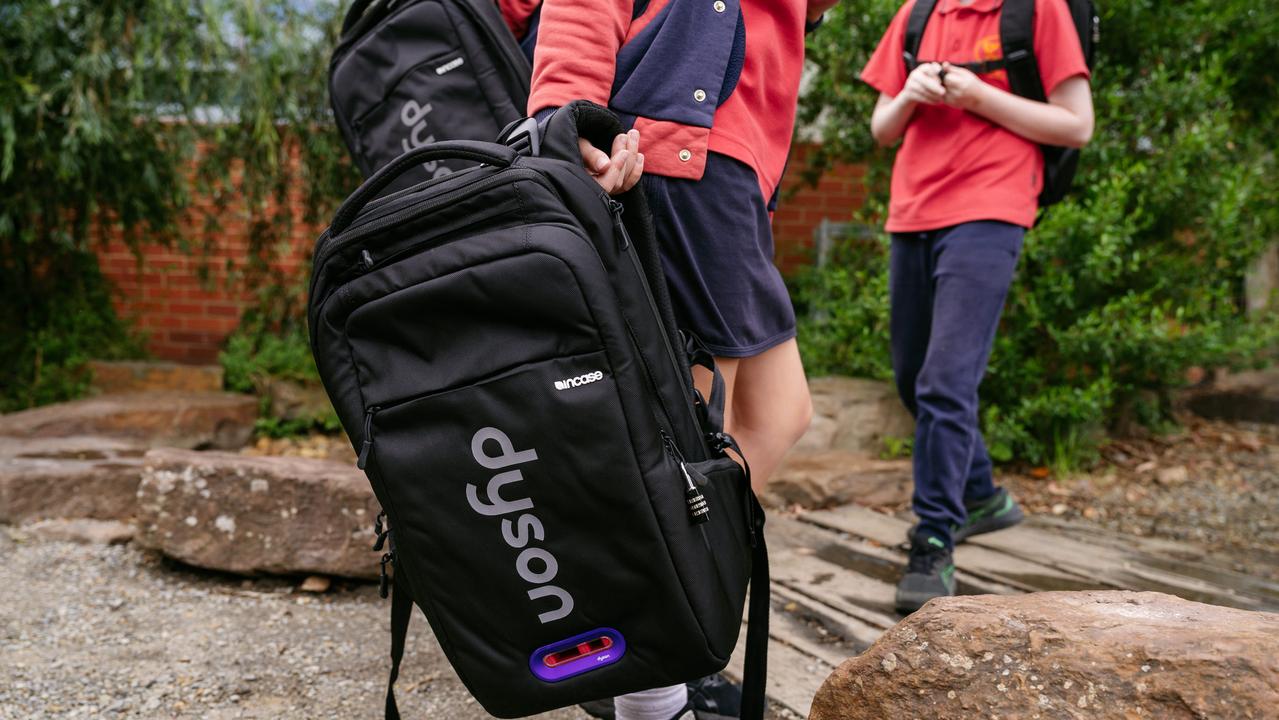Dyson air quality backpacks set to help Australians breathe easier, as ‘Breathe Melbourne’ study kicks off
Scientists believe these one-of-a-kind Dyson backpacks being trialled by schoolkids in Melbourne could help solve a massive health problem.

Schoolchildren in Melbourne’s inner west are paving the way towards a healthier future one backpack at a time thanks to a new initiative helping the city breathe easier.
In a Melbourne first, over 300 children from six primary schools will be sporting one-of-a-kind bags that double up as air quality readers to help scientists explore ways to reduce air pollution.
It’s all part of the study “Breathe Melbourne” where children will become air quality scientists by collecting valuable data while on their way to and from the classroom.

Schools in the council areas of Brimbank, Maribyrnong and Hobsons Bay were specifically chosen to be involved in the research due to the high air pollution levels and asthma rates.
This is because of the locations’ industrial history, proximity to the Port of Melbourne and the excessive amount of diesel-fuelled vehicles on surrounding roads, namely trucks.
Consequently, Professor Lou Irving from the Royal Melbourne Hospital says the area has become a “hotspot for active asthma” with more inner west children presenting to hospitals with the lung condition compared to most other areas of Australia.
“The Breathe Melbourne Study is very important because it focuses on a group of children who we know are already at risk because of poor air quality, and it’s aimed at helping to reduce the risk, as well as aiding the management of asthma symptoms.“
Appliance giant Dyson and the Victorian State Government have joined forces with Deakin University to bring the study to life, which will see the schoolchildren and some of their teachers wearing the air quality backpacks over a period of four days between mid-March and the end of May.

Dyson engineer and one of the masterminds behind the backpack, James Shale, explained how the air quality readers inside the bag worked, comparing it to the brand’s air purifiers.
In layman’s terms, a small fan within the backpack directs outside air through an opening towards the sensors, which then measures the air particles and volume of carbon dioxide.
A GPS tracker is also connected to the bag which allows experts to see what areas have more air pollution.
“(The bag also) contains a power pack, insulated foam on sensors and a lock on the front section of the backpack so kids don’t spill juice on it,” Mr Shale explained.
Meanwhile, the second section of the bag acts as a functional space so children can pack the items they need for school.
Data from the sensors is then analysed by researchers at Deakin University who will work with participating students to determine ways to improve the air they breathe.
A pilot study with students from Kingsville Primary School showed children willingly changed their walking routes and the ways they got to school following the experiment as they found healthier alternatives.
Additionally, over 31 per cent of students who participated in a similar study in London in 2019 said they would change the way they commuted to school.

While the study will educate children and develop their awareness around air pollution, lead researcher, Dr Kate Lycett ultimately hopes the data collected will persuade policy makers to take action.
“We have a lot of dirty fuel in Australia compared to other parts of the world and we need to obviously incentivise more electric vehicles, all those types of things … I think there’s a lot at the policy level and some of that is starting to happen,” Dr Lycett said.
“But personally, what I would love to do is get some funding so we could see what happens in two years to go back and do the study again and see how it compares. That would be a huge deal.”
In addition to “Breathe Melbourne”, two schools will also be participating in the “Idle Off” pilot project which seeks to educate drivers on the risks of idling and encourage them to turn their engines off when they’re not using the car.
“All children have the right to clean air … your postcode should not determine the quality of air you breathe,” Dr Lycett said.






